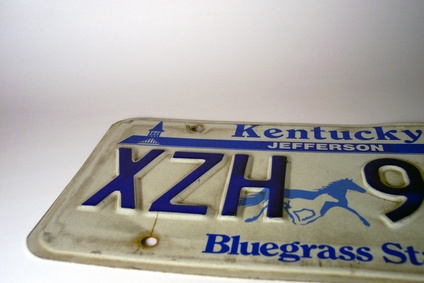
License plate numbers, stamped on metal or plastic registration plates attached to motor vehicles and trailers, are state-issued identification numbers. The best place to obtain an up-do-date reverse license plate record for the purpose of locating a vehicle identification number is at a state Department of Motor Vehicles office. The Driver's Privacy Protection Act restricts who can run such DMV reports (see Reference 1).
Locate a local DMV office. Policies on submitting record requests vary from state to state, so first check with your state DMV to review its requirements. To find a local DMV office, go to Onlinedmv.com and either select your state in the "Search DMV by State" menu at the top of the page or click on your state link in the middle column. After locating a local DMV office, call or write to inquire about record retrieval policies.
Familiarize yourself with the DPPA. The DPPA protects the privacy of people by prohibiting the release and use of drivers' personal information from state motor vehicle records (see Reference 1). These restrictions include who can run license plate numbers to retrieve information (such as VINs). Those who have legal authority to run license plate numbers include licensed private investigators, law enforcement, employers, those who have obtained a release for such information from the vehicle owner and the owners themselves. To review the DPPA, go to Epic.org, click "Policy Issues" in the top blue bar, scroll down the page and click the "Driving Records" link.
Accompany the vehicle owner to the DMV. If you are not the owner of that vehicle license plate, ask the owner to accompany you to the DMV office to place a request for a license plate report. Most DMV offices request an owner to verify his identity by showing his state driver's license.
Obtain a signed release. If the owner is unable to accompany you to the DMV office, request a signed release from the owner (which includes the owner's name, driver's license number, license plate number and an explicit approval for the release of records for that license plate). Most DMV offices require this signed release to also be notarized (to check your state DMV polices, see Step 1).
Hire a private investigator. If you have authority to obtain the VIN through a reverse license plate check (see Step 2), retain a private investigator to conduct the search for you. To find a qualified investigator, contact your state professional private investigator association. PI Magazine lists all state private investigator associations (go to Pimagazine.com, and under the "PI Links" menu in the top blue bar, select "State Associations - USA."